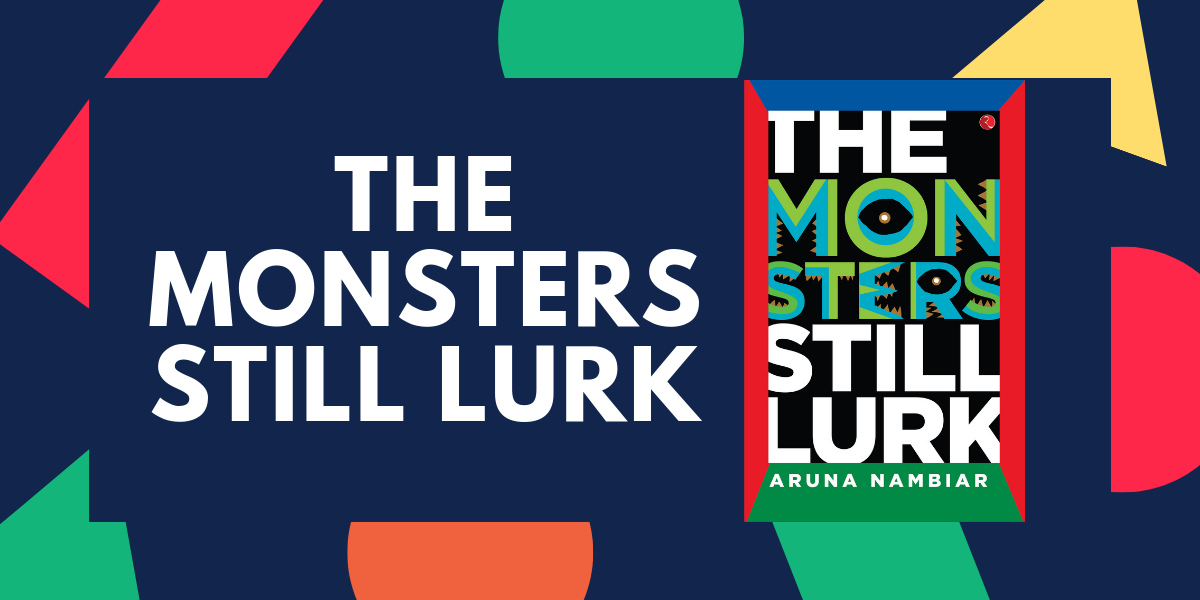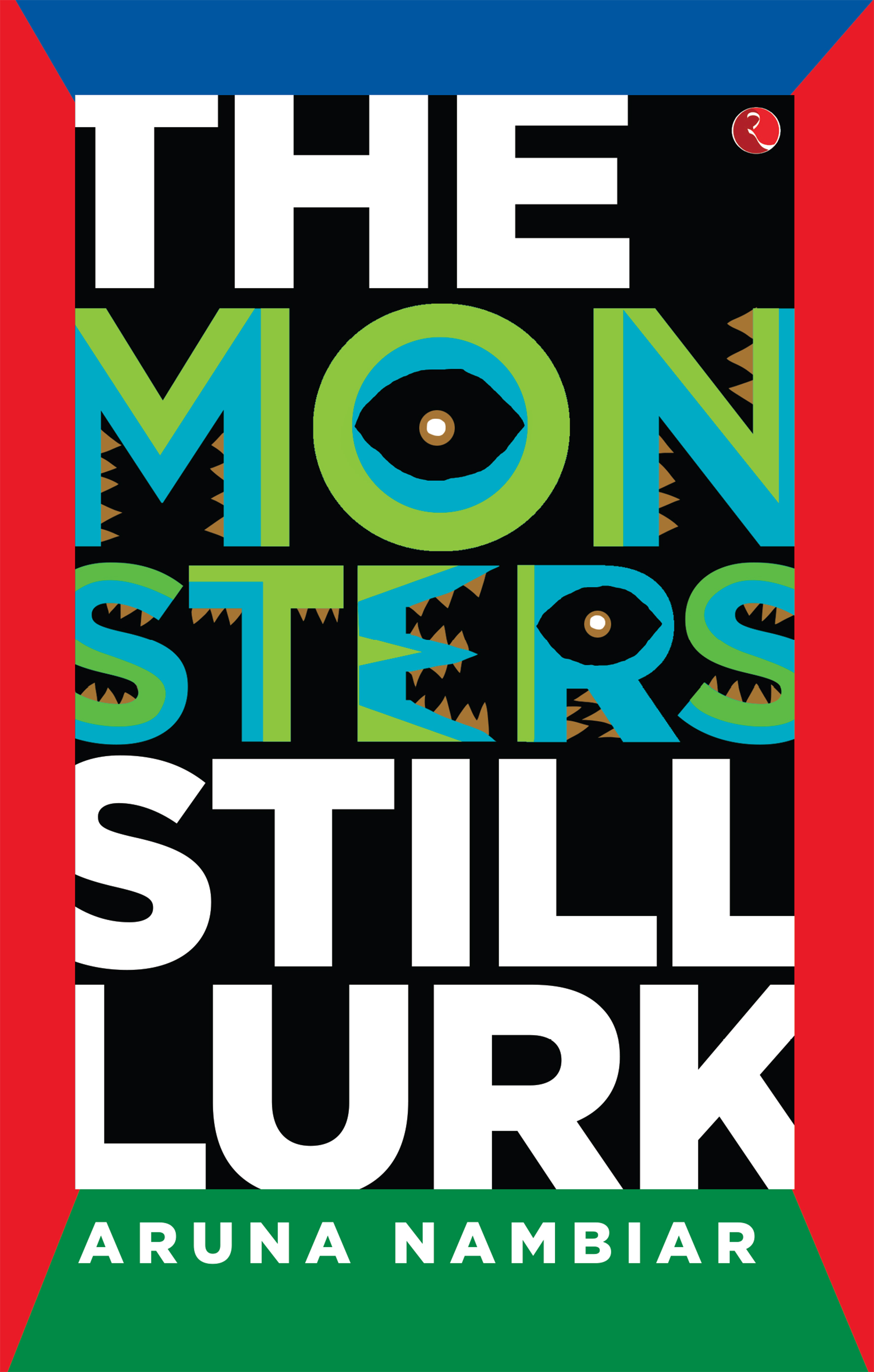The Monsters Still Lurk – Book Excerpt

It is 1991. As Rajiv Gandhi is assassinated and a new government comes to power, setting in motion a process of economic reforms that will transform India, an ordinary family is about to experience detours from the traditional middle-class script of their lives. Over the next quarter century, as the world around them changes in ways unexpected, their lives too wind along uncharted trails, sometimes sunlit, sometimes shadowy and forbidding.
‘Funny, moving and perceptive, ‘The Monsters Still Lurk’ by Aruna Nambiar is a bittersweet story of love, loss, family and ageing.’
The following is an excerpt from the book:
*********
From a very early age, we live with the spectre of our parents passing, with a consciousness of their frailty, an awareness of our own dependence on them. And yet nothing prepares you for a parent’s death. You know with certainty that it is going to happen one day; you pray for its postponement; when you’re young and dependent, you wonder how you will get by without them; you know, with certainty, that once it happens, your life will never be the same. You know there is nobody who will know you as well, love you as unselfishly, criticize you as bluntly, drive you mad quite as uniquely, wish you well as constantly—and you realize that there will be a hollow in your heart, and your life, when they are gone.
My earliest fears swirled around my mother. I vividly remember spending an entire school day, my stomach tied in knots, my mind twisted with worry, as lessons went on around me. All because a classmate had, during recess, casually mentioned to me that there was a monster prowling the street outside our school, the street my mother took every day as she came to pick us up from school.
‘Liar!’ I shouted.
‘You’re a liar!’ he shouted back, face smeared with the jam from his short-break sandwich. ‘Big, fat monster—as tall as that tree there, as big as that building! His teeth are as big as…as that blackboard…and…and…he’s already eaten twenty people. And stomped on fifty—no, hundred!’
When the end-of-day bell rang, I rushed outside and scanned the waiting faces anxiously—David Ling’s grandfather who practically lived in school, bringing him exotic-scented soups and prawn-dotted rice for lunch, a couple of aayahs, sweaty-faced and indifferent, and a sea of mothers, tall, short, fat, thin, fanning themselves with sari pallus, powdered and rosy in pastel midis, unsuitably attired for the Bombay heat in woollen pants and synthetic blouses. And among them Mum, neatly turned out as ever, her cotton sari stiff with starch, not a hair daring to stray out of her fake-hair-enhanced bun. I had rushed up to her and hugged her around the knees tightly, and she had paused from the gossip she was having with Aloo Poonawala’s mother—a riveting conversation about the PT teacher being caught with the school secretary under the assembly stage, I would later learn—and gave me a bemused look, confused with this show of affection from the son who usually trudged up to her reluctantly, dragging his water bottle behind him, averting his face if she bent down to kiss him.
We grow older, but the monsters still lurk, salivating and multiheaded, in the shadowy corners of our minds; death, disease and infirmity are the terrifying ogres of our adulthood.
**********

You can get the title here: https://amzn.to/2RS962f

